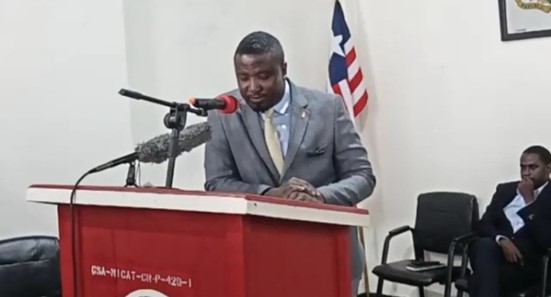The Liberian government, in partnership with the African Development Bank (AfDB), has unveiled an ambitious plan to construct a 273-kilometer coastal highway along Liberia’s southeastern coastline. This transformative infrastructure project aims to connect the key cities of Buchanan, Cestos, and Greenville, thereby bolstering regional connectivity and unlocking significant economic potential in the underserved southeastern region. The initiative underscores the government’s commitment to driving economic growth, improving living standards, and fostering sustainable development across the nation.
The project’s initial phase will focus on two crucial segments: a 74-kilometer stretch linking Buchanan to Cestos Bridge and a 31-kilometer section connecting Cestos Junction to Cestos City. Prior to the commencement of physical construction, critical pre-construction activities are already in progress. These include comprehensive environmental and social impact assessments to mitigate potential negative effects on the environment and local communities. A Resettlement Action Plan is also being developed to ensure fair compensation and support for individuals and communities affected by the road construction. This proactive approach demonstrates the government’s dedication to responsible and sustainable development practices.
To facilitate the smooth implementation of the project, the Ministry of Public Works has scheduled a period from January 7 to 16, 2025, dedicated to crucial preparatory steps. These include property identification, socio-economic assessments, and property valuations along the designated road corridor. The right of way for the road has been defined as 75 feet in rural areas and 50 feet in urban zones. Affected property owners are encouraged to actively participate in this process to ensure fair and transparent compensation for their land. The government is committed to upholding the rights of its citizens and ensuring their equitable participation in this transformative project.
In a bid to enhance transparency and address any concerns related to the project, the government plans to establish a grievance redress mechanism (GRM). This mechanism will provide a platform for individuals and communities to voice their concerns and seek redress for any grievances related to the project’s implementation. This proactive approach reflects the government’s commitment to participatory development and its dedication to addressing the needs and concerns of its citizens. By establishing a clear and accessible channel for grievance redressal, the government aims to build trust and ensure that the project benefits all stakeholders.
Beyond the immediate improvements to road safety and transportation efficiency, the coastal road project is expected to catalyze broader economic development in the southeastern region. Improved connectivity will facilitate trade and commerce, opening up new markets and opportunities for businesses. Enhanced mobility will enable easier access to essential services such as healthcare and education, thereby improving the quality of life for residents. The project is also anticipated to create numerous job opportunities during the construction phase and beyond, boosting local economies and contributing to poverty reduction.
In tandem with the coastal road project, the Liberian government has also announced a strategic initiative to address the nation’s energy deficit. A landmark agreement has been signed with Art of Energy Africa, a Ghana-based energy consulting firm, to explore hydropower development opportunities along the St. John River Basin. Comprehensive studies will be conducted along a 193-kilometer stretch of the river to identify suitable locations for the construction of multiple hydroelectric plants. This initiative underscores the government’s commitment to diversifying its energy sources, promoting renewable energy, and achieving long-term energy security and sustainability. The partnership with Art of Energy Africa, supported by the Liberia Electricity Regulatory Authority, represents a significant step towards realizing Liberia’s vision of a sustainable energy future. These ambitious infrastructure and energy projects collectively represent key components of Liberia’s broader strategy for national development, aiming to drive economic growth, improve living standards, and create a more prosperous future for all Liberians.


